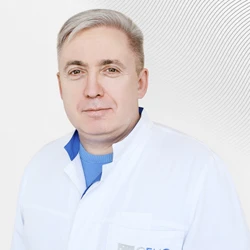Surgeon Iskra Daskalova on what led her to the profession, international experience, the importance of screening and modern surgical techniques in mammology
There is no story behind my decision to become a doctor. I've never wanted to be anyone else, and there's no particular reason for that. I didn't grow up in a family of doctors, and as a child I rarely went to the hospital, except to visit relatives. Before I started studying at university, I had no idea what it was really like to be a doctor. But I've always wanted to help people, and that's the purpose of this profession. From the moment I entered medical university, I wanted to become a surgeon. I wasn't really interested in other areas of medicine. Surgery brings me great satisfaction, because the result of my work is visible immediately after the operation, and there is no need to wait for the drug to take effect, as with therapeutic treatment, for example. In addition, it is a creative work, especially in the field of mammology. I also chose this specialty because surgical oncology is a vast field for research, and there are many areas in which to develop. I couldn't do something like anatomy, where you have to learn the facts once and then repeat the same thing year after year, and the chance of discovering something new is negligible.I have worked in countries such as Italy and Ireland, where there is a well-organized breast screening program. The first survey program in Europe was launched in the 1970s and 80s in Florence, where I was an intern, and it was organized by Prof. Cataliotti, who was my mentor. Thanks to this program, currently more than 30% of breast cancer cases are diagnosed at a very early stage of the disease, at stage 0 (in situ).
In Ireland, this program covers women between the ages of 50 and 64. They get a free mammogram every two years. As part of the BreastCheck screening program, they receive an individual letter inviting them to be diagnosed at one of the 8 national centers. Mobile stations equipped with mammographs are used in rural areas. Women get a mammogram near their homes, then a breast X-ray specialist at one of these 8 major centers decodes the image. The best specialists in the field of radiology come from these centers. It happens that they analyze over 5,000 mammograms per year. But the more images a specialist has to analyze, the more experience he gets. If a disease is detected during the examination, treatment, including surgical operations to remove tumors, breast reconstruction, if necessary, chemotherapy, radiation therapy, etc., is carried out free of charge (expenses are reimbursed as part of the BreastCheck screening program). I have worked in 2 of these 8 centers. 50% of patients came for treatment thanks to the screening program. Here, in Russia, most patients go to the doctor with pronounced symptoms (self-detected lump).
Different countries have adopted different survey standards, and they are constantly changing. But we must remember that the main purpose of screening is to raise awareness about breast cancer – this is exactly our main message. Women should overcome their fears and regularly check the condition of their mammary glands.
All over the world, people are afraid of cancer. The only difference is that in Western countries, patients have much more information, which makes it a little easier for them to accept the diagnosis. Thanks to the media, they already know that BREAST CANCER IS NOT A DEATH SENTENCE. Today, breast cancer treatment has advanced significantly, it gives excellent results, and patients with the disease at an early stage have a very high chance of a complete cure. This means that it is much better to start treatment on time than to be afraid and postpone visiting a doctor until it is too late. Unfortunately, I have the impression that many people in Russia believe that it is impossible to cure breast cancer. Therefore, women do not go for treatment without expecting good results from it. That's why I want to tell them that it's okay to be afraid, and to overcome their fears, you need to gather as much information as possible. Even if your diagnosis is confirmed, treatment can be very effective, so please come for an examination on time.
Unfortunately, there are cases in oncological practice when we cannot help a patient. I once worked with a woman whose tumor was the size of a baby's head. I can't imagine how she lived with it for many years. Fortunately, such cases are very rare.
It's a pity, but as far as I know, in many hospitals in Russia, full mastectomy and axillary dissection are standard and universal procedures for all breast cancer patients. A lot has changed in the field of breast surgery over the past thirty years. Since the 1980s, organ-preserving surgery and radiation therapy have been considered alternatives to mastectomy. Of course, there are indications for these two operations. However, if a mastectomy is unavoidable, patients should be aware that there are a number of possibilities for immediate reconstruction using implants or the patient's own tissue, taken, for example, from the back or abdomen. This minimizes the stress caused by breast loss, increases the level of satisfaction with treatment and quality of life. In addition, today, with mastectomy, it is possible to preserve the skin of the breast, and sometimes the nipple. This approach is used when immediate reconstruction may be required, and its great advantage is to preserve the natural appearance of the breast and achieve an aesthetic effect. Over the past 15 years, skin-preserving mastectomy and mastectomy with the preservation of the nipple-alveolar complex have become widespread, and it has been proven that the oncological safety of these procedures is similar to standard mastectomy, of course, performed according to certain indications. It is safe to keep the skin, because breast cancer is a disease of the glandular tissue, not the skin of the breast.
If we talk about my surgical experience, I think I learned the most at the University Hospital of Florence. In Ireland, I learned an evidence-based approach to treatment and acquired the habit of constant professional development, regular reading of scientific journals and, generally speaking, constant self-education.
From the point of view of patients, I think the best mammology department I worked in was in a private hospital (Fondazione S.Maugeri) in Pavia, Italy. This facility was completely focused on the needs of patients. On the same floor, patients could meet with an oncosurgeon and a plastic surgeon, in the same building there were departments of radiation therapy and oncology, rehabilitation and radiation diagnostics, and a histologist specializing in breast diseases worked there. By and large, everything that we have in the EMC was there.
I was deeply impressed by the team of young specialists at EMC, the modern equipment, the pleasant and friendly atmosphere and, in general, the fact that this clinic is both multifunctional and compact. I am very glad that I became a part of the team. Most of the doctors working here have studied abroad. There is truly high-quality equipment for the diagnosis of breast diseases and, most importantly, experienced specialists in the field of radiation diagnostics.
Breast cancer treatment is complex. The treatment plan for each patient is drawn up by several specialists. Each case needs to be discussed in an interdisciplinary consultation, and that's what we do at the EMC. There is a meeting once a week where we discuss each patient. Our multidisciplinary team consists of a histologist specializing in breast tumors, a radiologist, a surgeon, an oncologist, a radiation therapist, specialists in nuclear medicine, if necessary, a plastic surgeon, a specialist in reproductive medicine, as well as a psychoncologist. This approach minimizes errors.
I would advise women who are looking for a place to start treatment to choose a specialized oncological hospital or a specialized department for breast diseases with a multidisciplinary team of doctors specializing in this particular disease, and not just general surgeons. I would also recommend choosing an English-speaking doctor. It may sound strange, but all new scientific publications, regulations, and treatment recommendations are published in English. If the doctor does not know the language, how will he get up-to-date information? In addition, English is required to participate in international conferences and seminars that highlight new trends in treatment.
Was this information helpful?
Questions and answers
Ask a Question
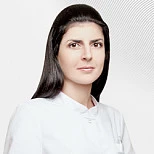





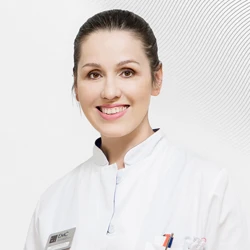
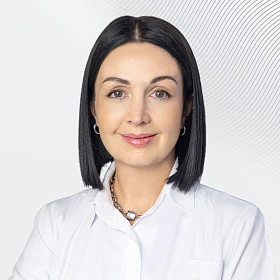

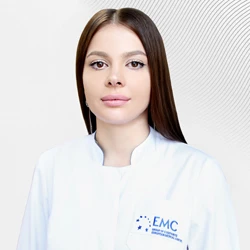
.webp)
